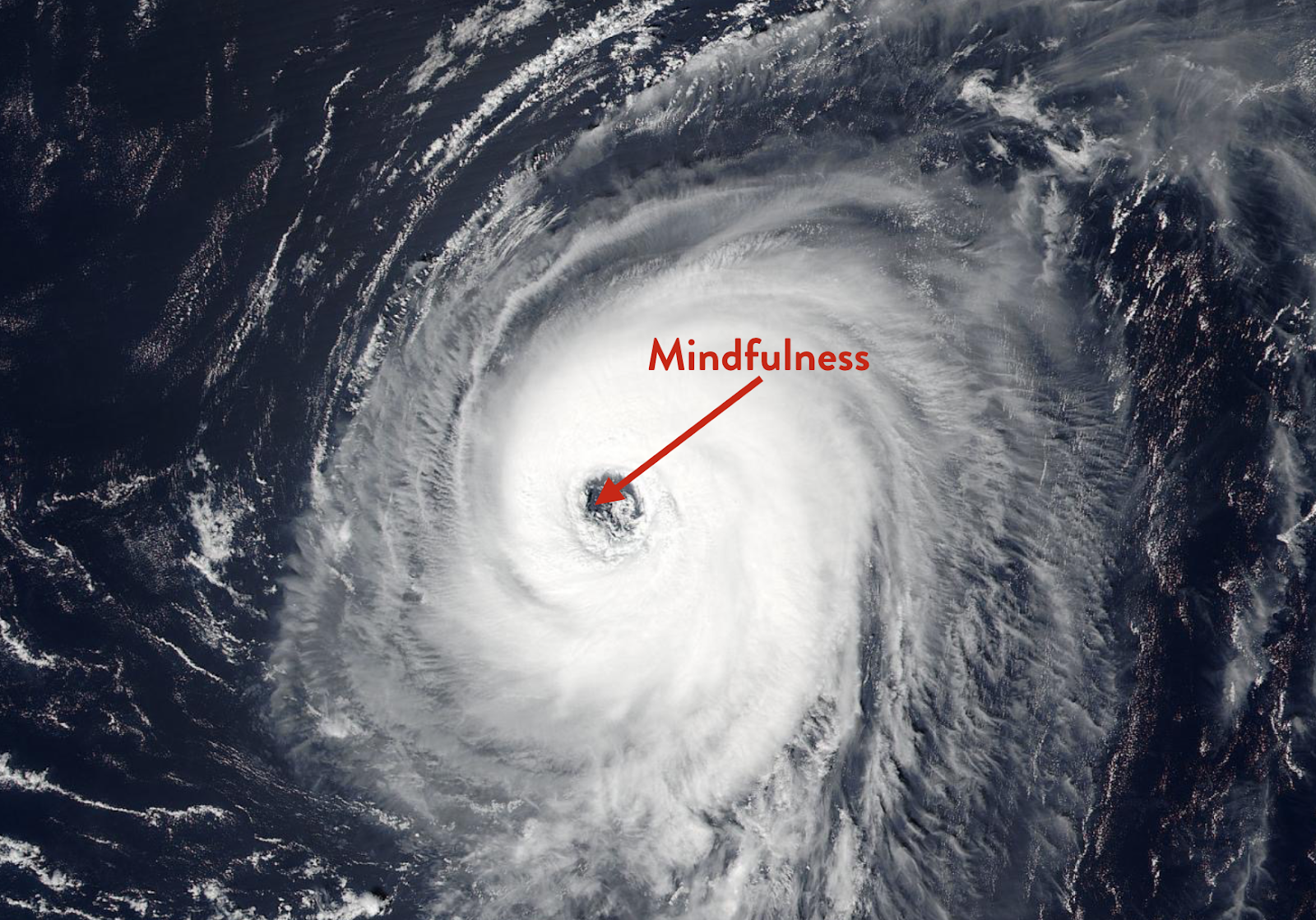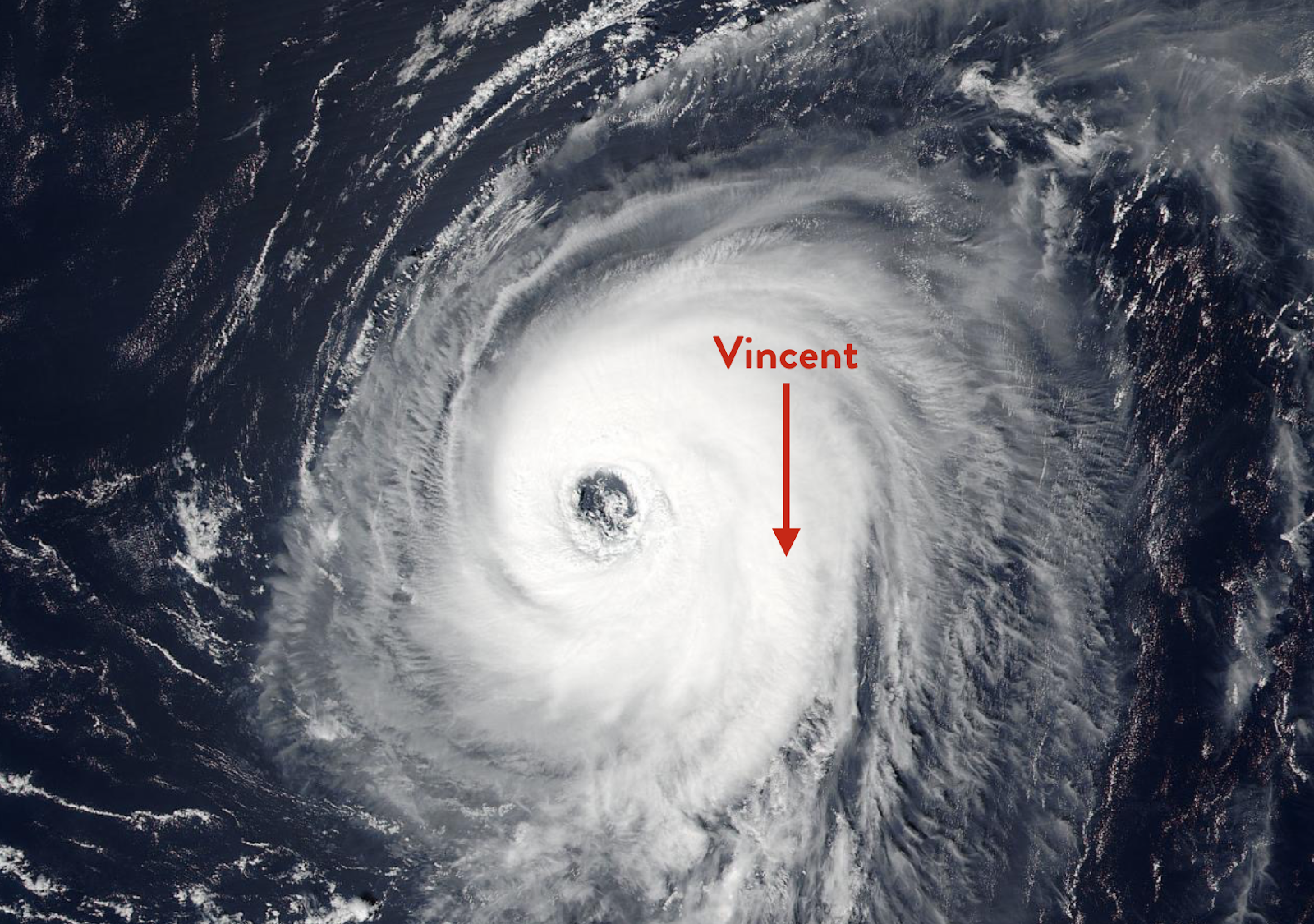There are many reasons to meditate, but the value of being mindful in these overstressed times lies in the ability to navigate real-life minefields. It's one thing to be calm and centered in the middle of a cozy incense-drenched studio. The real trick is staying composed and mindful in the midst of chaos.I've always loved this one scene in Pulp Fiction as a case study in applied mindfulness: Shortly after performing a kidnapping, gangster Vincent Vega, played by John Travolta, of course, accidentally blows the head off the victim sitting in the back of his car. After a mild freakout, Samuel L. Jackson's character, Jules Winnfield, steers the blood-soaked Chevy Nova towards the nearby home of Jimmi, an acquaintance played by Quentin Tarantino. The three of them assess the situation and determine that they are in way over their heads. It's time to call in The Wolf.A few minutes later, Harvey Keitel's tuxedo-wearing Wolf arrives to do what he does best: fix things that other can't. We get the impression that the Wolf is legendary in the gangster underworld of LA for making very bad situations go away, and quickly.After a few pleasantries, the Wolf gets down to the business of stage-managing the situation with effortless ease; swiftly and curtly directing Vincent and Jules to clean up the bloody bits of brain from the back seat of the car. It's a comically chaotic situation that the Wolf navigates with cool skill and poise.I'll break from explaining the scene to tell you just how much I love this character. If I had a "mindfulness" spirit animal it would be Keitel's Wolf. He's influenced my direction more than any deity or sage I've ever read about in any Buddhist text. I'm by no means throwing shade at any spiritual or religious based mindfulness practice, I'm just saying the techniques learned in sitting meditation or silent retreats are just as needed away from the cushion or yoga studio.Secular mindfulness pioneers like Jon Kabat-Zinn and George Mumford teach us to lean into the hard times, accepting them for what they are and acting in a way that's productive. There are many approaches to mindfulness, but Mumford's is perhaps the most apt here: He teaches people to "respond from the center of the hurricane, rather than reacting from the chaos of the storm." The Wolf embodies these words. Back to the scene at Jimmi's house. The Wolf finishes delivering his marching orders to the three men, but Vincent chooses to focus on the understandably abrupt tone of the Wolf's instructions and just can't let it go, throwing the plan off course. Vincent is in the storm, not in the present. He can't let his ego go, despite the fact that there are more pressing matters at hand.But once again, the Wolf handles the situation with grace and ease, crisply explaining to Vincent that he's fixing the problem that he himself created. The situation cools and the gangsters go back to the business of covering-up a murder.The Wolf does not let the situation get the best of him the way it did for Vincent. He's in the center of the hurricane, where mindfulness is.
Back to the scene at Jimmi's house. The Wolf finishes delivering his marching orders to the three men, but Vincent chooses to focus on the understandably abrupt tone of the Wolf's instructions and just can't let it go, throwing the plan off course. Vincent is in the storm, not in the present. He can't let his ego go, despite the fact that there are more pressing matters at hand.But once again, the Wolf handles the situation with grace and ease, crisply explaining to Vincent that he's fixing the problem that he himself created. The situation cools and the gangsters go back to the business of covering-up a murder.The Wolf does not let the situation get the best of him the way it did for Vincent. He's in the center of the hurricane, where mindfulness is.
 Read This Next: Mindfulness is a Tool of the Resistance
Read This Next: Mindfulness is a Tool of the Resistance
Advertisement
Advertisement